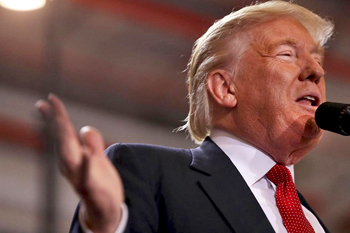Washington, Dec 2: United States President-elect Donald Trump's “ignorant” conversation with Pakistan Prime Minister Nawaz Sharif may send India an unwelcome message, a leading American magazine has said.
 The Forbes magazine has said that Mr. Trump's “flattering” conversation sends a message that he has no awareness of the issues among the U.S., Pakistan and India.
The Forbes magazine has said that Mr. Trump's “flattering” conversation sends a message that he has no awareness of the issues among the U.S., Pakistan and India.
“His bluster is more likely to be taken as the initial signal of his administration's position. When he goes on and on about how wonderful Pakistan is, and how strong is his friendship, it matters. It matters that he uses words like: very good reputation, amazing work...fantastic country, fantastic place, fantastic people,” it said.
‘It shows he is unaware'
“One of the main messages it sends, is that he shows no awareness of the issues between the United States, Pakistan, and India,” it said.
Stating that Mr. Trump is not aware about the ground realities in South Asia, it said, his “ignorant” conversation with Mr. Sharif may send India an “unwelcome message.”
Meanwhile, a prominent Hindu American group urged Mr. Trump to carefully look at the records of Pakistan — in particular, its fight against terrorism and human rights.
‘Tact needed to deal with Pak'
“Diplomacy is necessary in dealing with Pakistan, but President-elect Trump and his administration will need to proceed with caution and full awareness of the country's double-dealing track record,” Suhag Shukla, executive director of Hindu American Foundation said in a statement expressing concern over the readout issued by Pakistan after a telephonic conversation between Trump and Prime Minister Nawaz Sharif.
“If the transcript of the conversation is indeed accurate, we'd urge President-elect Trump to look more carefully at Pakistan's record within its own borders and with its neighbours before offering praise to a state that according to most observers is failing,” Mr. Shukla said.





Comments
Add new comment